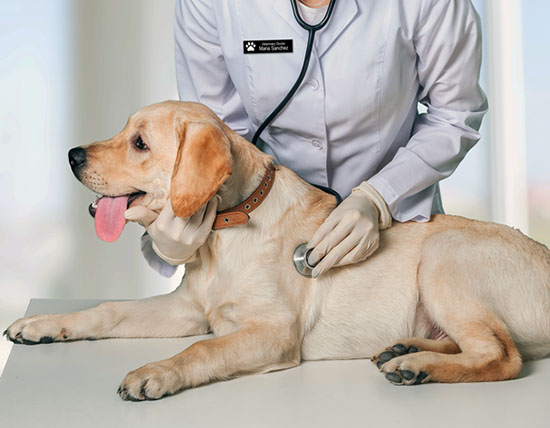Pet Cancer Surgery demystified for concerned animal caregivers
Comprehensive Guide to the Solutions Provided by a Veterinary Oncologist
Veterinary oncology incorporates a large array of services targeted at diagnosing and dealing with cancer cells in pet dogs. Board Certified Veterinary Oncologist. Oncologists utilize advanced diagnostic strategies and provide numerous treatment alternatives tailored to each animal's demands. They additionally prioritize encouraging treatment and supply useful sources for family pet owners. Recognizing these solutions is important for making notified decisions. What certain aspects of vet oncology can significantly influence a pet's treatment journey?
Understanding Vet Oncology
Vet oncology is a customized area concentrated on dealing with and diagnosing cancer in animals. This self-control incorporates a vast array of methods, from medical therapies such as radiation treatment and immunotherapy to surgical interventions intended at removing growths. Vet oncologists are trained to identify the distinct indications of cancer cells in numerous types, enabling them to tailor treatment strategies to specific patients.
In enhancement to standard therapies, veterinary oncology stresses supportive care, which plays a vital role in enhancing the lifestyle for damaged animals. This consists of pain monitoring, dietary support, and palliative care options. Cooperation with family pet proprietors is critical, as they are important to decision-making concerning their family pets' therapy courses. As research advances, vet oncology continues to advance, offering new hope and enhanced outcomes for pet dogs detected with cancer cells. Generally, this field is fundamental for dealing with the intricacies of cancer in buddy pets.
Advanced Diagnostic Techniques
Advanced diagnostic strategies play an essential duty in veterinary oncology, offering crucial understandings into the existence and degree of cancer cells in animals. Imaging methods such as ultrasound, CT scans, and MRI are generally utilized to visualize lumps and examine their characteristics. Additionally, biopsy procedures are very important for obtaining tissue examples, permitting definitive diagnosis and tailored therapy plans.
Imaging Modalities Utilized
Imaging methods play a crucial role in the medical diagnosis and monitoring of cancer in pets. Veterinary oncologists use numerous advanced imaging methods to examine growth transition, presence, and size. Radiography, or X-rays, provides a preliminary sight of bone and upper body problems, while ultrasound provides real-time imaging of soft cells, allowing for comprehensive analysis of inner body organs. Computed tomography (CT) boosts visualization of complicated physiological structures and enables 3D reconstructions, assisting in precise growth localization. Magnetic resonance imaging (MRI) is vital for soft tissue distinction, particularly in mind tumors. Furthermore, nuclear medicine strategies such as positron emission tomography (PET) aid determine metabolic task within growths. Jointly, these techniques boost analysis precision, leading effective treatment approaches for oncological people.
Biopsy Procedures Explained
Following the initial analysis with imaging methods, obtaining a definitive diagnosis usually calls for cells sampling with biopsy procedures. Vet oncologists use numerous biopsy methods based upon the growth's place and characteristics. Fine needle goal (FNA) is a minimally intrusive approach that draws out cells for cytological evaluation, ideal for shallow masses. Core needle biopsies give larger tissue samples and work for deeper tumors, enabling histopathological evaluation. Surgical biopsies involve excising a section or the entire lump, assisting in comprehensive analysis. These treatments not just validate the existence of cancer cells but likewise assist determine its kind and grade, leading therapy choices. Each biopsy strategy is picked very carefully to stabilize analysis precision with patient security and convenience.
Treatment Choices for Cancer Cells in Pet dogs
When a pet dog is detected with cancer cells, a range of therapy options appear to help enhance and manage the illness lifestyle. Veterinary oncologists commonly advise a multidisciplinary technique tailored to the specific family pet's demands, which might include surgical procedure, radiation therapy, immunotherapy, or alternate therapies.
Surgical procedure is frequently utilized to remove lumps and affected tissues, potentially bring about full remission in many cases. Radiation therapy aims to ruin and target cancer cells, lowering lump size and minimizing signs - Board Certified Veterinary Oncologist. Immunotherapy takes advantage of the pet dog's immune system to eliminate cancer better, while alternate therapies could include acupuncture or natural supplements to support total health
Each treatment choice carries its own advantages and risks, and veterinary oncologists work closely with pet proprietors to design a detailed strategy that lines up with the pet's particular diagnosis and the proprietor's wishes. The utmost objective is to boost the pet's comfort and lifestyle throughout their cancer trip.
Radiation treatment for Animals
Radiation treatment is a typical treatment choice for family pets detected with cancer and is frequently made use of combined with other treatments laid out by veterinary oncologists. This treatment entails the management of details medications made to destroy and target cancer cells, thereby minimizing tumor dimension and stopping the spread of the condition. Vet oncologists customize radiation treatment click here for info methods based on the sort of cancer cells, the pet dog's general health, and the desired treatment result.
Side impacts can happen, as these medications might also impact healthy cells. Common responses consist of nausea, throwing up, and temporary modifications in appetite - Veterinary Oncologist. Veterinary oncologists are geared up to take care of these side effects properly, guaranteeing the animal's comfort throughout the treatment procedure. Normal tracking with blood tests and follow-up consultations is crucial to evaluate the animal's action to radiation treatment and make required changes. Eventually, radiation treatment can give substantial benefits, improving the high quality of life for pets dealing with cancer cells medical diagnoses

Radiation Therapy in Vet Medicine
Radiation treatment serves as an efficient treatment option for pet dogs detected with local tumors, providing a targeted approach to cancer administration. This technique makes use of high-energy radiation to damage the DNA of cancer cells, inhibiting their capacity to proliferate. It is especially advantageous for tumors that are not open to medical removal or for instances where surgical procedure may not be viable due to check the lump's place.
Vet oncologists customize radiation protocols based upon lump location, dimension, and kind, along with the pet dog's total health and wellness. Treatment can be delivered using external beam of light radiation or brachytherapy, each with distinctive benefits. Usually, several sessions are required to optimize effectiveness while decreasing negative effects.
Pet dogs may experience temporary reactions such as skin irritation, the overall goal is to reduce lumps and reduce signs and symptoms, ultimately improving the pet dog's prognosis and top quality of life. As necessary, radiation therapy plays an essential role in complete cancer cells care.
Palliative Treatment and Top Quality of Life
Palliative treatment in veterinary oncology concentrates on enhancing the top quality of life for pet dogs dealing with incurable ailments, making sure comfort and dignity in their final days. This customized approach focuses on discomfort management, signs and symptom control, and psychological support. Vet oncologists evaluate each animal's specific requirements, customizing treatments to minimize discomfort and enhance overall wellness.
Methods might include carrying out drugs for discomfort relief, handling queasiness, and attending to other traumatic signs and symptoms. Additionally, nutritional assistance is usually supplied to keep strength and improve hunger. The psychological element of palliative care is similarly crucial; developing a tranquil setting aids reduce anxiety for both pet dog and owner.
Ultimately, the objective of palliative treatment is to enable pets to enjoy their staying time with as much joy and dignity as possible. By concentrating on convenience and high quality of life, vet oncologists play an important duty in making certain that family pets and their family members navigate this tough journey with compassion and understanding.
Support for Animal Owners During Treatment

Emotional Guidance for Owners
Charting the emotional landscape during a pet's cancer cells therapy can be an overwhelming experience for proprietors. The unpredictability surrounding diagnosis and diagnosis can lead to sensations of unhappiness, stress and anxiety, and helplessness. Vet oncologists acknowledge the significance of psychological support and frequently supply assistance to assist proprietors navigate this difficult trip. Communication is necessary; reviewing therapy choices and potential outcomes can minimize some anxieties. In addition, using peace of mind that psychological responses are legitimate fosters a helpful atmosphere. Lots of oncology facilities might additionally recommend support teams or therapy services customized for pet proprietors, facilitating shared experiences. Encouraging proprietors to focus on self-care throughout this time around is vital, as their psychological get redirected here health directly influences their pet's convenience and general treatment experience.

Resources and Educational Products
Guiding through the intricacies of a pet dog's cancer cells therapy can be frightening for proprietors, making accessibility to instructional materials and reliable sources crucial. Veterinary oncologists often supply an array of handouts, brochures, and online products that discuss therapy choices, possible adverse effects, and treatment methods. These sources aid empower and demystify the procedure pet owners to make enlightened choices. Additionally, many oncology facilities supply access to support groups and online forums where owners can get in touch with others dealing with similar obstacles, fostering a feeling of area. Educational seminars and webinars carried out by veterinary professionals even more enhance understanding, making certain that proprietors are well-appointed to browse their pet dog's trip with cancer cells treatment with self-confidence and understanding.
Frequently Asked Questions
How Can I Prepare My Pet Dog for a Veterinary Oncology Check Out?
Preparing a family pet for a vet oncology check out includes gathering clinical documents, keeping in mind signs and symptoms, and making sure the pet is comfy. A calm behavior and familiar things can help relieve stress and anxiety during the visit.
What Are the Indicators My Pet Dog May Have Cancer Cells?
Signs that a pet may have cancer cells consist of unusual weight-loss, relentless vomiting or looseness of the bowels, unusual lumps or swellings, sleepiness, changes in hunger, trouble breathing, and changes in actions. Motivate veterinary attention is vital.
Just How Can I Assistance My Animal Emotionally Throughout Therapy?
Supporting a pet psychologically throughout therapy entails offering convenience, maintaining regimens, offering gentle affection, and making certain a calm environment. Participating in silent play and regular friendship aids relieve anxiety and promotes a complacency.
Exist Different Therapies for Pets With Cancer?
Alternate treatments for pets with cancer cells consist of acupuncture, herbal therapies, and dietary support. These techniques might match conventional treatments, advertising total well-being. Consulting with a veterinarian is necessary for safe and effective assimilation of alternative therapies.
What Prices Should I Anticipate for Veterinary Oncology Providers?
The anticipated expenses for veterinary oncology services can differ considerably, usually influenced by diagnostics, therapies, and continuous treatment. Pet dog proprietors should plan for costs varying from examinations to specialized therapies, showing the complexity of cancer monitoring.
Partnership with pet dog owners is crucial, as they are important to decision-making concerning their animals' therapy paths. Each treatment alternative carries its very own advantages and risks, and vet oncologists function closely with family pet owners to develop a comprehensive strategy that straightens with the animal's certain diagnosis and the owner's desires. Pet dogs may experience momentary responses such as skin irritation, the overall goal is to reduce tumors and minimize signs and symptoms, ultimately improving the animal's diagnosis and top quality of life. Assistance for pet owners during therapy is essential in guiding through the emotional challenges connected with a pet dog's cancer cells diagnosis. Preparing an animal for a vet oncology browse through involves gathering medical records, noting signs, and making certain the pet is comfortable.